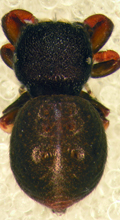Latest News Archive
Please select Category, Year, and then Month to display items
12 June 2024
|
Story Zinzi Zumana
|
Photo supplied
 UFS Lekgotla Men’s Well-being Programme: addiction dialogue encourages empowerment and exchange of ideas.
UFS Lekgotla Men’s Well-being Programme: addiction dialogue encourages empowerment and exchange of ideas.
The University of the Free State (UFS)
Division of Student Affairs hosted a ‘Dialogue on Addiction’ at the Equitas Senate Hall on 20 April 2024 as part of the UFS Lekgotla Men’s Well-being Programme. Led by the esteemed
Ace Moloi, male students’ well-being was addressed by focusing on topics relating to substance abuse, the ‘hookah pipe’, pornography, and digital addiction.
Ogaisitse Diseko, an expert on substance abuse, highlighted the misconceptions and societal impact of substances such as ‘bath salts’. Male students shared personal experiences, emphasising the need for early interventions and community backing to combat addiction.
Prof Noluxolo Gcaza, a Nelson Mandela University Professor specialising in digital wellness, presented on digital well-being, internet safety, and managing screen time. The dialogue concluded with Billy Mogadi sharing his journey from addiction to recovery, underscoring the human toll and the possibility of transformation.
Mogadi’s story resonated deeply, fostering hope and empowerment among attendees. The event highlighted the power of dialogue and support in addressing addiction issues. By promoting genuine interaction and providing the necessary tools, such initiatives contribute to community well-being and development. The UFS Lekgotla Men’s Well-being programme advances its goal of fostering healthier lives through open communication and mutual support.
UFS entomologists describe a new spider species
2014-02-19
|
 |
It is about 3mm in size and almost looks like a ladybird, but this new spider is the cause of great excitement at the University of the Free State’s (UFS’s) Department of Zoology and Entomology.
The new species of spider, now known as Rhene amanzi, was recently described for the first time and was ‘introduced’ to other arachnologist at the recent congress of the African Arachnology Society at Amanzi Private Reserve.
Dr Charles Haddad, senior lecturer in the UFS’s Department of Zoology and Entomology, said they already stumbled upon the male spider in 2010 when a student was doing research at the reserve. After a very long process, the spider was described and a couple of weeks ago, whilst at the congress, they also found the female.
“Up to now we only know that the spider lives in trees in the Brandfort area. The range could be wider, but since it was only described recently, other arachnologists will only now be able to identify accurately.”
Dr Haddad says they still have to determine how many eggs the female is able to lay, what the spider’s life cycle looks like and what their habitual preferences are.
“What we do know is that it probably isn’t poisonous and that the spider imitates a ladybird in order to protect itself against predators.”